The Scottish Association for Marine Science sees huge potential for new products and climate-change mitigation
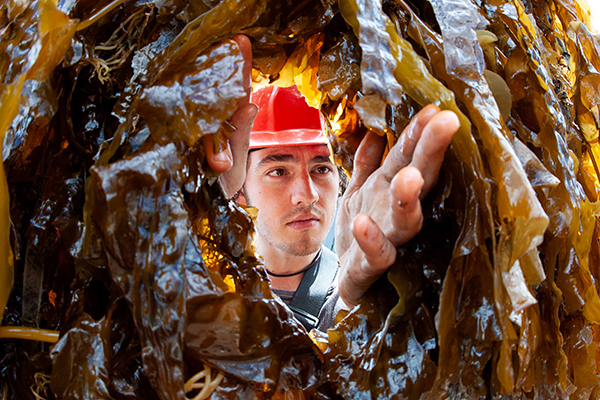
The Scottish Association for Marine Science (SAMS) in Oban announced on Tuesday that it had opened the Seaweed Academy in Oban to advise start-ups, train workers and share research for business development.
The academy, built with £407,000 (U.S.$512,000) in funding from the UK Government’s Community Renewal Fund, is the United Kingdom’s first dedicated seaweed industry and research facility.
SAMS has a seaweed farm and nursery where seed stock is grown. Prior to the launch, 200 primary school children and other invited guests visited SAMS on Monday to learn about seaweed, its uses and its potential as a means to sequester carbon and mitigate the impacts of climate change.
“Education is absolutely critical here as we collectively need to learn from this past experience in the ocean to build a sustainable future on land,” said Vincent Doumeizel of Lloyd’s Register Foundation and United Nations Global Compact. “A Seaweed Academy to train future seaweed pioneers is the best to reconnect altogether with sea vegetables. It may well be a new revolution for our civilization, a Seaweed Revolution!”
Globally, the seaweed farming industry has been growing exponentially and is estimated to be worth around $15 billion per year with the vast majority produced in Asia. Already used extensively in food ingredients, agriculture, cosmetics and pharmaceuticals, seaweed farming has a low carbon footprint, using no fresh water and with minimal land-based infrastructure.
“Seaweed farming is an industry that can support coastal communities, like the ones we have across the Highlands and Islands, while showing others an example of the best of the blue economy,” said SAMS Director Prof. Nick Owens.
Also, SAMS opened the Culture Collection for Algae and Protozoa (CCAP), which holds around 3,000 strains of microscopic organisms like marine and freshwater algae, cyanobacteria and protozoa, as well as seaweeds and seaweed pathogens. The collection is nearly a century old. The state-of-the-art facility will help researchers discover new products and medicines.
“We have thousands of strains of algae that we maintain and supply to the research community and commercial companies, but there remains a wealth of untapped potential to be exploited in these organisms,” said Dr. Michael Ross, head of CCAP. “Scientists around the world are looking for products useful to pharmaceuticals, cosmetics or to the food and beverage industries, and algae are high on the agenda given their natural diversity and ability to grow in a sustainable way. Researchers are also investigating the use of algae as a fuel, in cleaning up environmental pollutants and even their ability to absorb carbon.”
Follow the Advocate on Twitter @GSA_Advocate
Now that you've reached the end of the article ...
… please consider supporting GSA’s mission to advance responsible seafood practices through education, advocacy and third-party assurances. The Advocate aims to document the evolution of responsible seafood practices and share the expansive knowledge of our vast network of contributors.
By becoming a Global Seafood Alliance member, you’re ensuring that all of the pre-competitive work we do through member benefits, resources and events can continue. Individual membership costs just $50 a year.
Not a GSA member? Join us.
Author
Related Posts
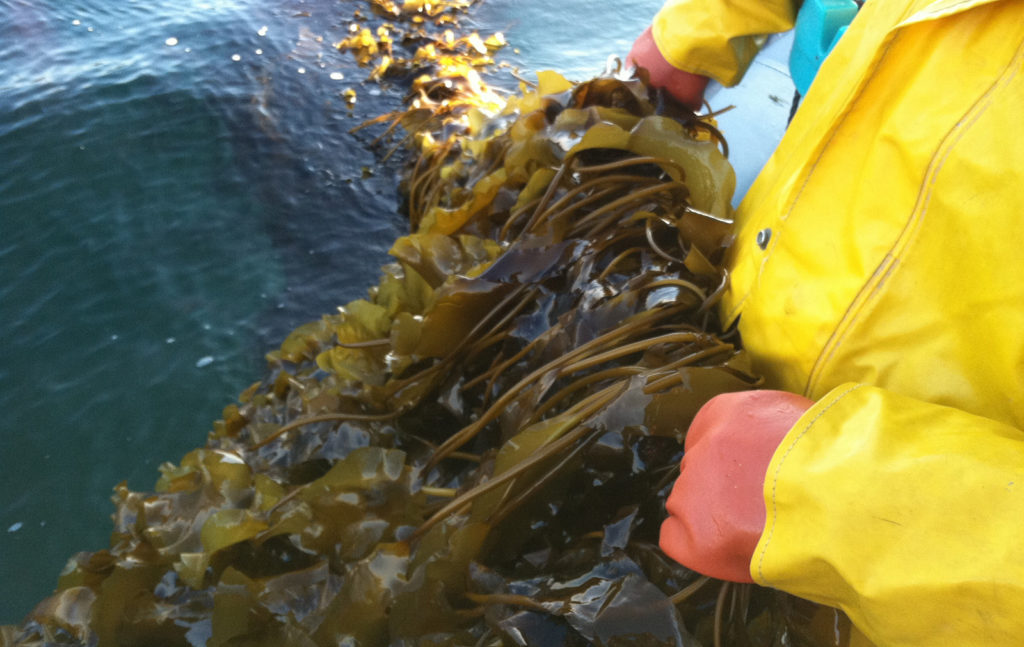
Responsibility
Lean and green, what’s not to love about seaweed?
Grown for hundreds of years, seaweed (sugar kelp, specifically) is the fruit of a nascent U.S. aquaculture industry supplying chefs, home cooks and inspiring fresh and frozen food products.
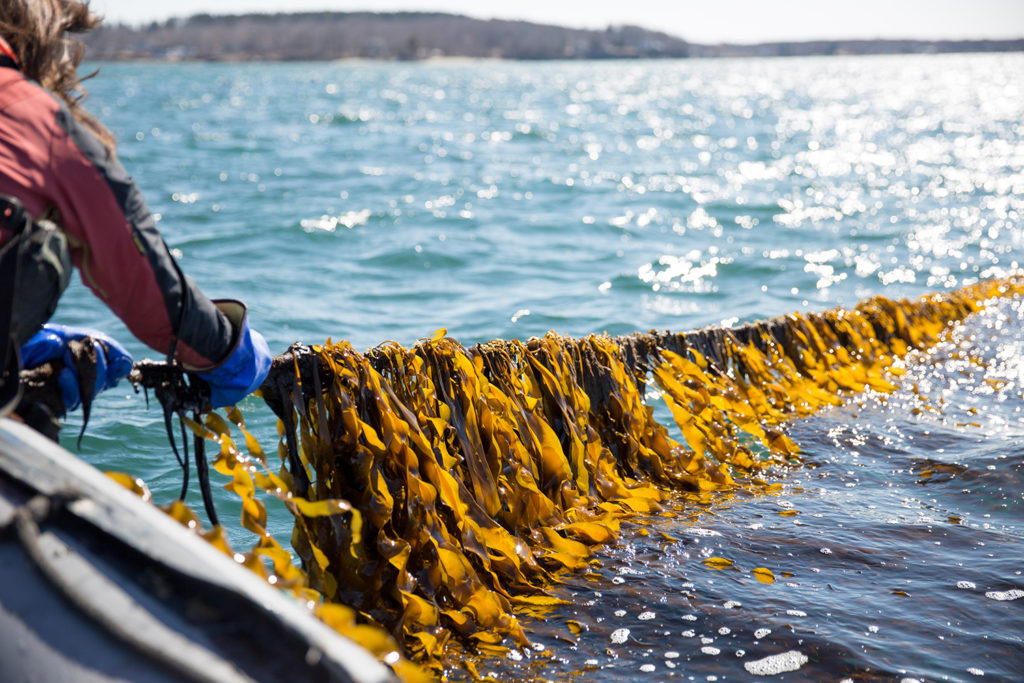
Intelligence
Kelp is the climate-friendly crop that could
Kelp aquaculture is poised for growth on both U.S. coasts, but one grower network in Maine is building a brand and demand for domestic seaweed.
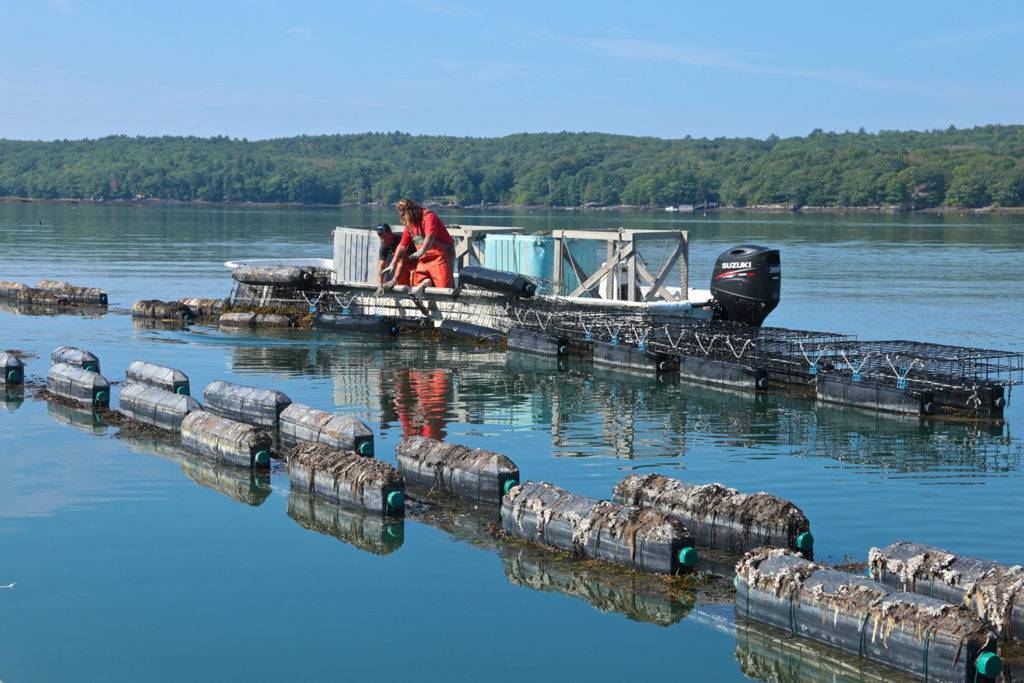
Responsibility
Maine oyster farmer stares down climate change, learns to adapt
Bill Mook’s oyster farm is adapting to more frequent and intense rains, more acidic and warming seawater and other challenges that climate change brings.
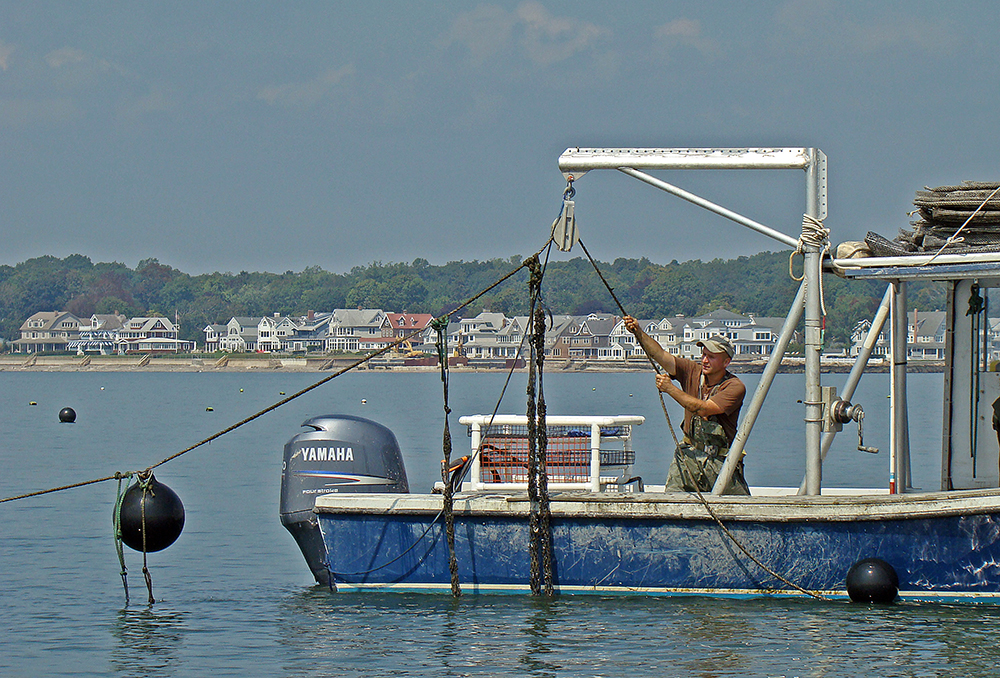
Responsibility
Lease, seed and repeat: GreenWave’s replicable aquaculture
Don’t call it integrated multi-trophic aquaculture: Former commercial fisherman Bren Smith says polyculture of non-fed species is the future of aquaculture.



